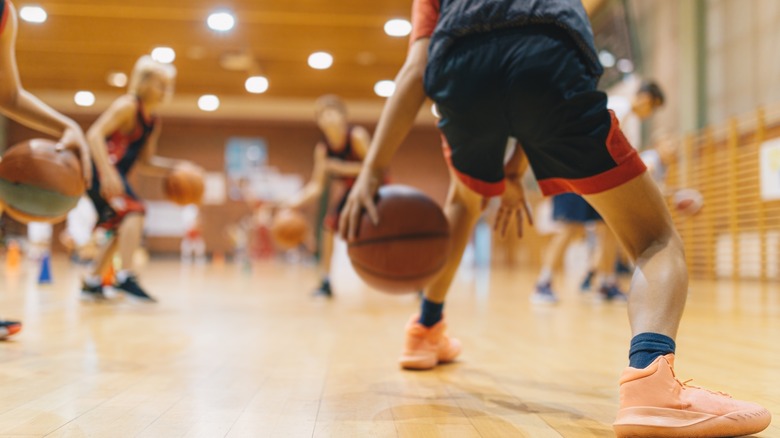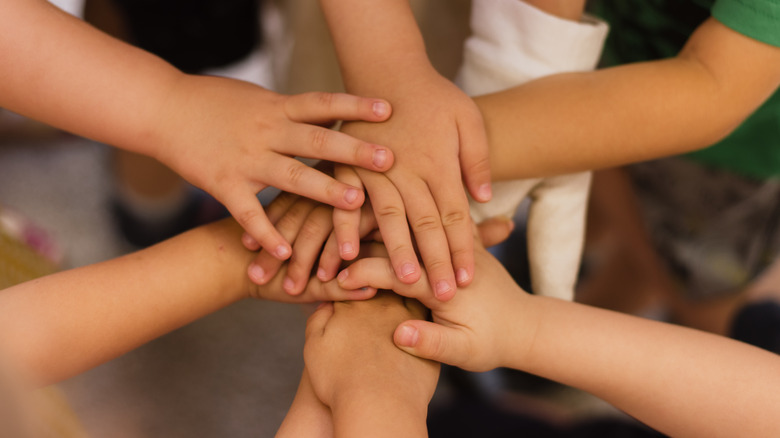How Team Sports Can Boost Kids' Mental Health
From fresh air to physical activity, it's easy to see how sports are beneficial to kids. Now, new research shows that team sports, specifically, are good for children's mental health and may be even better than individual sports (per Healthline).
Sports are a great way to spend time with friends and stay physically fit, but there are even more benefits than that, according to WebMD. Playing sports and exercising releases endorphins in the body, which are the feel-good chemicals that relieve pain and moderate stress. Exercise can also reduce stress hormones like cortisol and adrenaline. Playing sports allows us to focus on the task at hand, giving us a break from worries and even helping us sleep better. Some studies show that playing sports can help fight addiction, treat depression, and improve serious mental illnesses like schizophrenia. However, if elite athletes are pushed too hard, they may be more likely to experience burnout, depression, or eating disorders.
Are team sports better for children's mental health?
A new study published in PLOS ONE analyzed data from 11,235 children in the U.S. aged 9 to 13, looking at the link between team sports and mental health (via Healthline). Researchers used self-reports from parents and guardians on their children's mental health and connected it to their involvement in sports, adjusting for other variables like age, sex, race/ethnicity, and family household income. They found that those who played team sports had fewer signs of anxiety, depression, social problems, withdrawal, and attention difficulties. Contrary to prior studies, researchers also found that children who played an individual sport, such as tennis or wrestling, actually experienced greater mental health difficulties than if they hadn't played any sport at all.
However, some experts disagree that individual sports aren't beneficial to children, claiming that kids can feel pressure to perform well in both team and individual sports (via Healthline). It's also important to note that some experts say the benefits of sports depend on the child, as individual sports can be better for neurodiverse kids who may struggle with frustration tolerance, performance anxiety, and sensory issues. The study authors said that further detailed research is needed.


